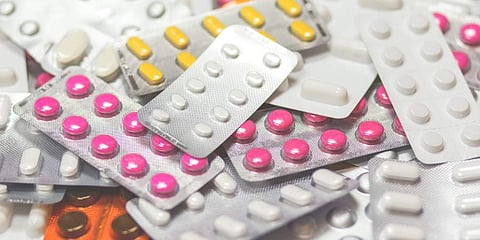

NEW DELHI: The Centre rolled out an Uniform Code for Pharmaceutical Marketing Practices (UCPMP) for pharmaceutical companies on Tuesday.
The latest additions will not allow pharma companies to offer gifts to any healthcare professional or their family, arrange travel in and outside the country for them to attend conferences, seminars, and workshops, or even extend hospitality like hotel stay, expensive cuisine, resort accommodation or pay in cash.
It reiterated its earlier code of offering healthcare professionals travel facilities, hospitality, and cash or monetary grants to physicians or their families and added a few more details.
It also detailed the penalties for violating the code and how complaints will be handled.
Listing how complaints against pharma companies should be lodged, the code said that the complainant should deposit a non-refundable amount of Rs 1,000.
It stressed that no pseudonymous or anonymous complaints or those made without the prescribed fee will be entertained.
It also said that if a code violation appears in the media, it will be treated as a complaint.
The Union Ministry of Chemicals and Fertilisers also said that the Pharmaceutical Associations should constitute an Ethics Committee for Pharmaceutical Marketing Practices (ECPMP) and set up a dedicated UCPMP portal on their website.
The code, which has been updated from time to time since it was made operational on January 1, 2015, and aims to prevent unethical practices by pharmaceutical companies, said that the company found to be violating the code should submit its comments and supporting documents in not more than 30 days after receiving notice from the Committee and which will give its decision within 90 days of the receipt of the complaint.
It added that if a code breach is found, than the complainant and the company will be advised in writing, including about taking the remedial steps. If the company files no appeal within the stipulated period, the ECPMP decision will be considered final and binding.
The decision will be uploaded on the website of the Association and the Department of Pharmaceuticals.
On penalties, the code said that the committee could suspend or expel the entity from the association, reprimand it and publish it or ask it to issue a corrective statement in the media.
It also lists that they can be asked to recover money or items given in violation of the code from the concerned person. It stressed that the company's CEO is responsible for adherence to the code.
The code governs the conduct of pharmaceutical companies in their marketing practices, duly covering various aspects such as medical representatives, textual and audio-visual promotional materials, samples, gifts, etc.
For medical representatives, the code said that pharma companies should not employ any inducement or subterfuge to gain an interview. They must not pay, under any guise, for access to a healthcare professional.
For the pharma company, it said that the promotion of a drug must be consistent with the terms of its marketing approval. A drug must not be promoted before receipt of its marketing approval from the competent authority authorising its sale or distribution.
The information about drugs must be balanced, up-to-date, and verifiable and must not mislead either directly or by implication.
The pharma companies should not make claims and comparisons of their drug's usefulness, and the word "safe" must not be used without qualification, and should not claim that the medicine has no side effects, toxic hazards, or risk of addiction.
“The word "new" must not be used to describe any drug which has been generally available or any therapeutic intervention which has been generally promoted in India for more than a year,” the code said.
Each pharma company also needs to maintain details such as product name, doctor name, the number of samples given, date of supply of free samples to healthcare practitioners, etc., and the monetary value of samples so distributed should not exceed two percent of the company's domestic sales per year.
The uniform code also lists in detail how the drug should be promoted - both in texts and in the audio-visual market.
The name of the drug, along with a list of active ingredients using the generic name, should be placed immediately adjacent to the most prominent display of the name of the drug, and the recommended dosage, method of use, and where not evident, its method of administration should be listed.
Adverse reactions, warnings, precautions for use, and other details for using the product should be mentioned.
It also said that the names or photographs of healthcare professionals must not be used in promotional material.
Free samples of drugs should not be supplied to anyone not qualified to prescribe such a product, and samples of products should be handed directly to the person qualified to prescribe such product.
It also said that each sample should be marked "free medical sample not for sale” and each sample pack should not be larger than most minor packs in the market.
A pharmaceutical company should not supply a sample of a drug, which is a hypnotic, sedative, or tranquilliser.